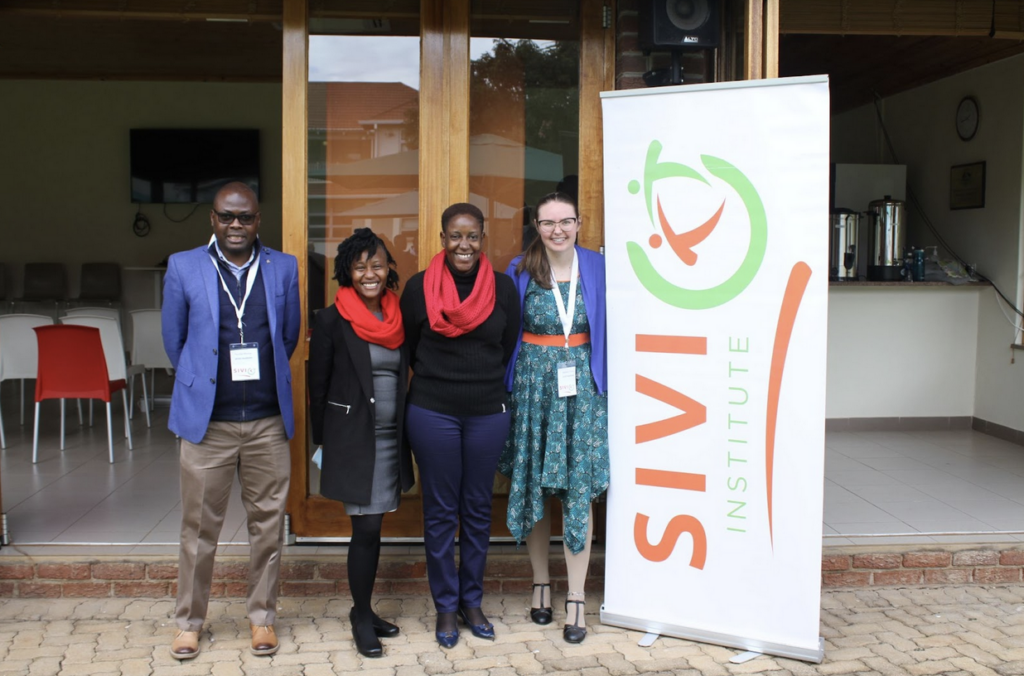Originally Posted by Anne Stopper from the Mozilla Foundation: Laying the Groundwork for Small Business Successes, from Zimbabwe to Kenya – Mozilla Foundation
The SIVIO Institute is a Mozilla IRL Fund Awardee. It has developed a tool to measure the effectiveness of financial inclusion policies aimed at Micro, Small, and Medium Enterprises (MSMEs) – a critical first step in ensuring the success of smaller businesses.
We spoke with Executive Director Tendai Murisa and Project Coordinator Belinda Chaora about how the organization is expanding its work from Zimbabwe to Zambia, Malawi, and Kenya

- Many MSMEs can’t currently access financial products and services that are available to larger businesses. Barriers include restrictive regulatory policies and lack of access to electricity, devices, and reliable internet connectivity
- In some cultures and regions, women and young girls are discouraged from having their own bank accounts and/or access to money
- The SIVIO Institute’s Financial Inclusion Index of MSMEs is a critical measurement tool to help shape, inform, and improve policy changes that will help MSMEs access the digital financial products and services they need to reach their full potential
The Issue
Over the past two decades, African MSMEs have experienced a burgeoning growth, due in large part to microfinance companies (MFIs), which have made it easier for people outside of urban hubs to access new business financing. Typically, MFIs have less stringent lending requirements than banks, allowing MSMEs that might not have otherwise had access to bank funding to get off the ground. Remittance services and payment gateways to help ease payment transactions have also been critical to MSME growth. As migration has risen between African countries, and both migrant and home communities rely on the movement of funds from breadwinners across borders, remittance services have been a crucial funding lifeline. The rise of more digital payment gateway services like PayPal, Western Union, and others, especially in the wake of the pandemic, have likewise helped MSMEs grow by facilitating cross-border transactions.
While these improvements in financing and digital payment options bode well for MSMEs, there has been a lack of reliable, current data about the effectiveness of financial inclusion policies meant for them. Some MSMEs are reluctant to formally register with the government (which recently became a requirement in Kenya) due to increased tax implications. They can also be wary of sharing information via surveys – a challenge for researchers like the SIVIO team. There’s a similar lack of information about financial institutions’ work on bolstering financial inclusion through mobile and digital currencies.
The Approach
The SIVIO Institute is gathering data about financial inclusion policies and institutions geared towards MSMEs at a critical time. “Financial inclusion is a big agenda item for many African countries right now. Several countries have already formally considered, or will consider, new financial inclusion policies for adoption in the coming years that will have impacts far into the future,” Chaora says.
The goal is for the information from the Financial Inclusion Index to provide policymakers with the most useful, independent, and credible information possible about how to improve MSME access to digital lending and payment services.
The SIVIO Institute is one the first 13 awardees of Mozilla’s “In Real Life” (IRL) Fund, which supports community-serving organizations in Africa that are advancing digital and human rights, both on-and offline — with a particular focus on Eastern and Southern Africa. This grantmaking mechanism is part of the Africa Innovation Mradi, a program that leverages Mozilla’s role as stewards of the open web to promote innovation grounded in the unique needs of users in African countries.
The Mozilla funding made it possible for The SIVIO Institute to expand its data collection from Zimbabwe to include Zambia, Malawi, and Kenya.
What Does Success Look Like?
Says Chaora: “We will know our work is done when we’ve finished our survey and created a website where all our financial inclusion data from Zambia, Kenya, and Malawi will be housed. We hope to spark a wider, more expansive series of dialogues around financial inclusion across Africa in the future.”
Inspiration/Hero
“Mo Ibrahim of Celtel was one of the first people to expand mobile phone infrastructure across the African continent, which has been crucial to African development,” Chaora says. “Mo found a way, where most people had written Africa off.
“Strive Masiyiwa of Econet and Ecocash is another innovator in mobile money, which has transformed the transaction space in Zimbabwe. Ecocash was one of the first mobile money platforms in that country. Masiyiwa and his family are also big philanthropists in giving back to Zimbabwe through the Higher Life Foundation and Delta Philanthropies. ”
